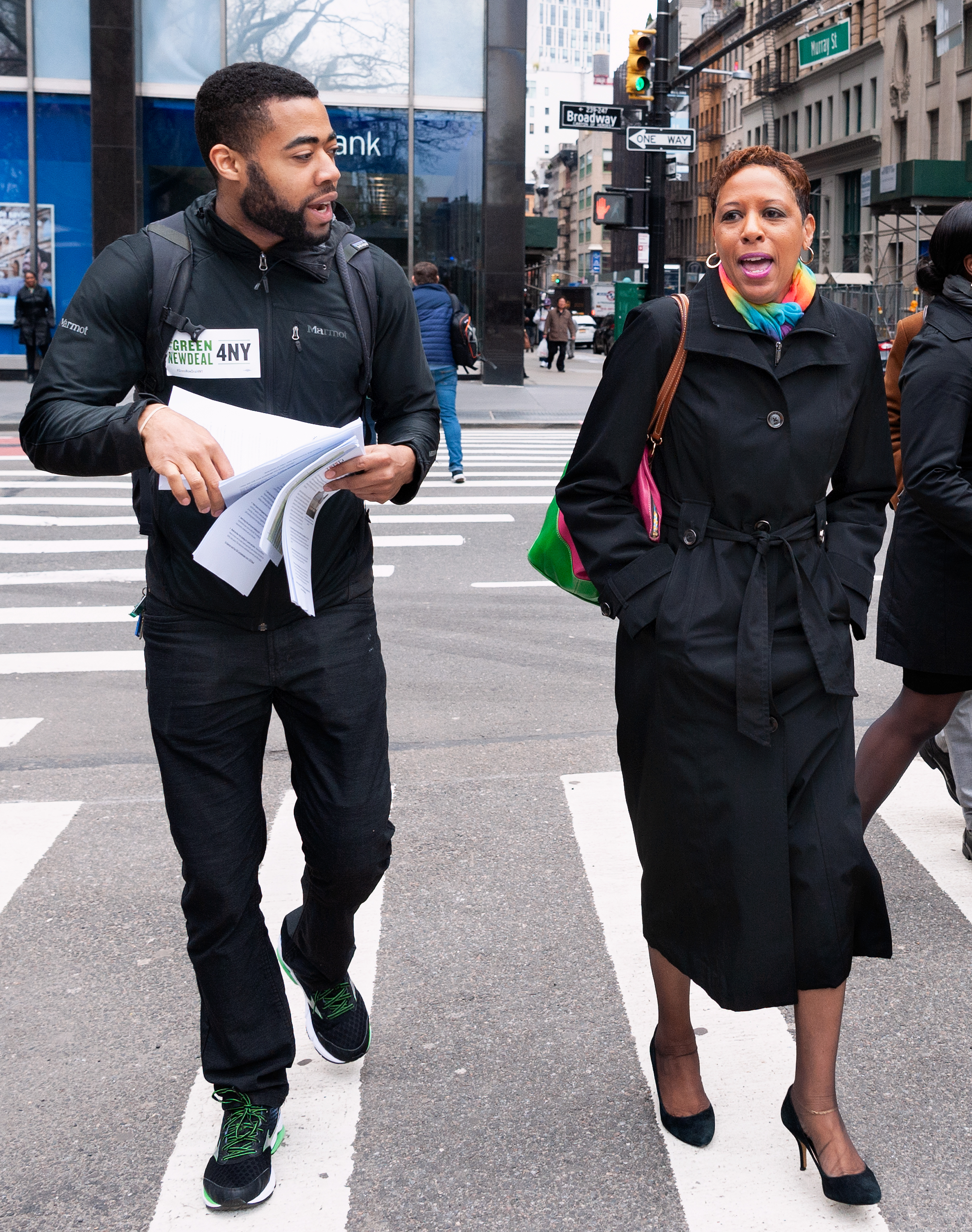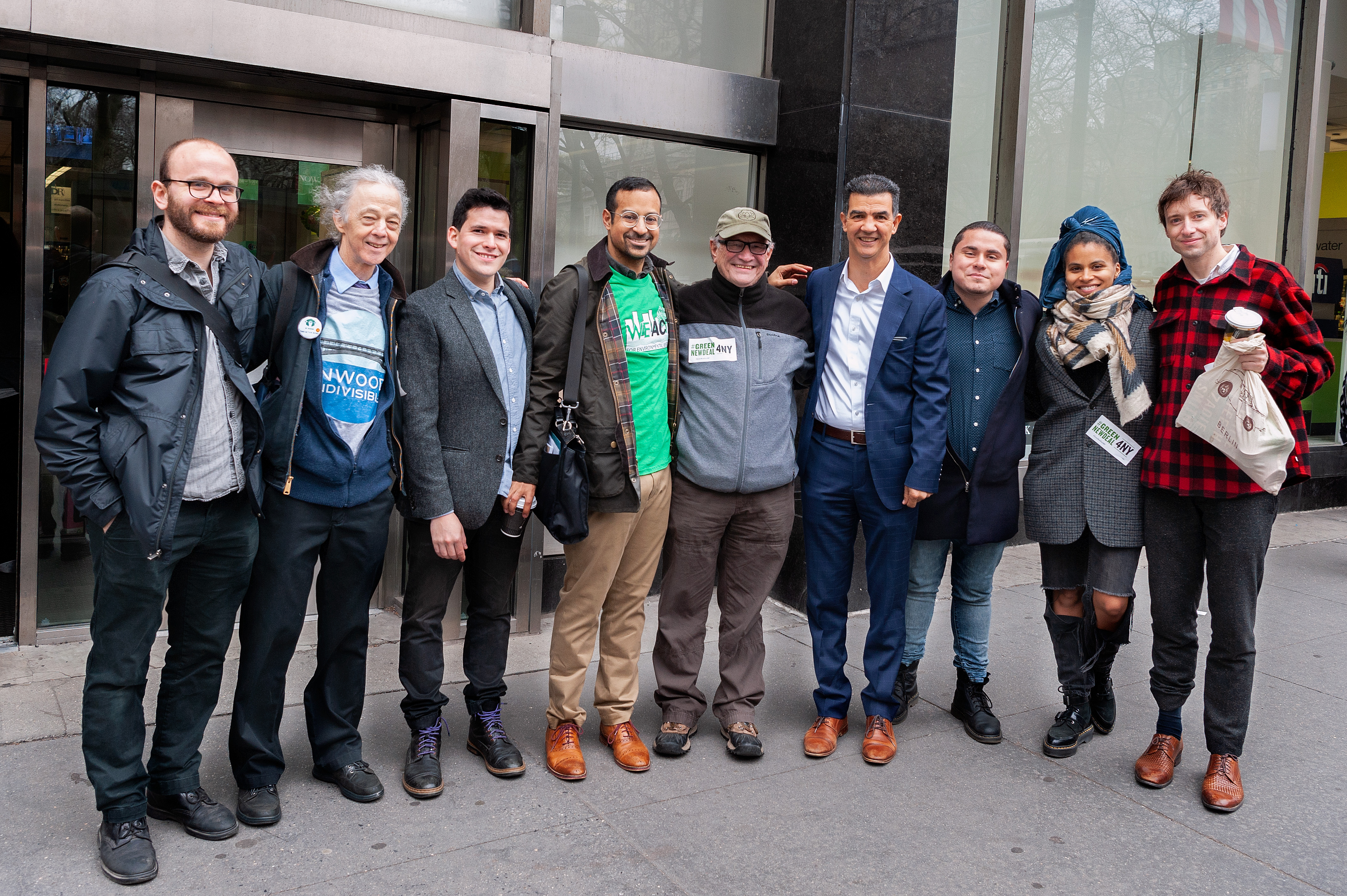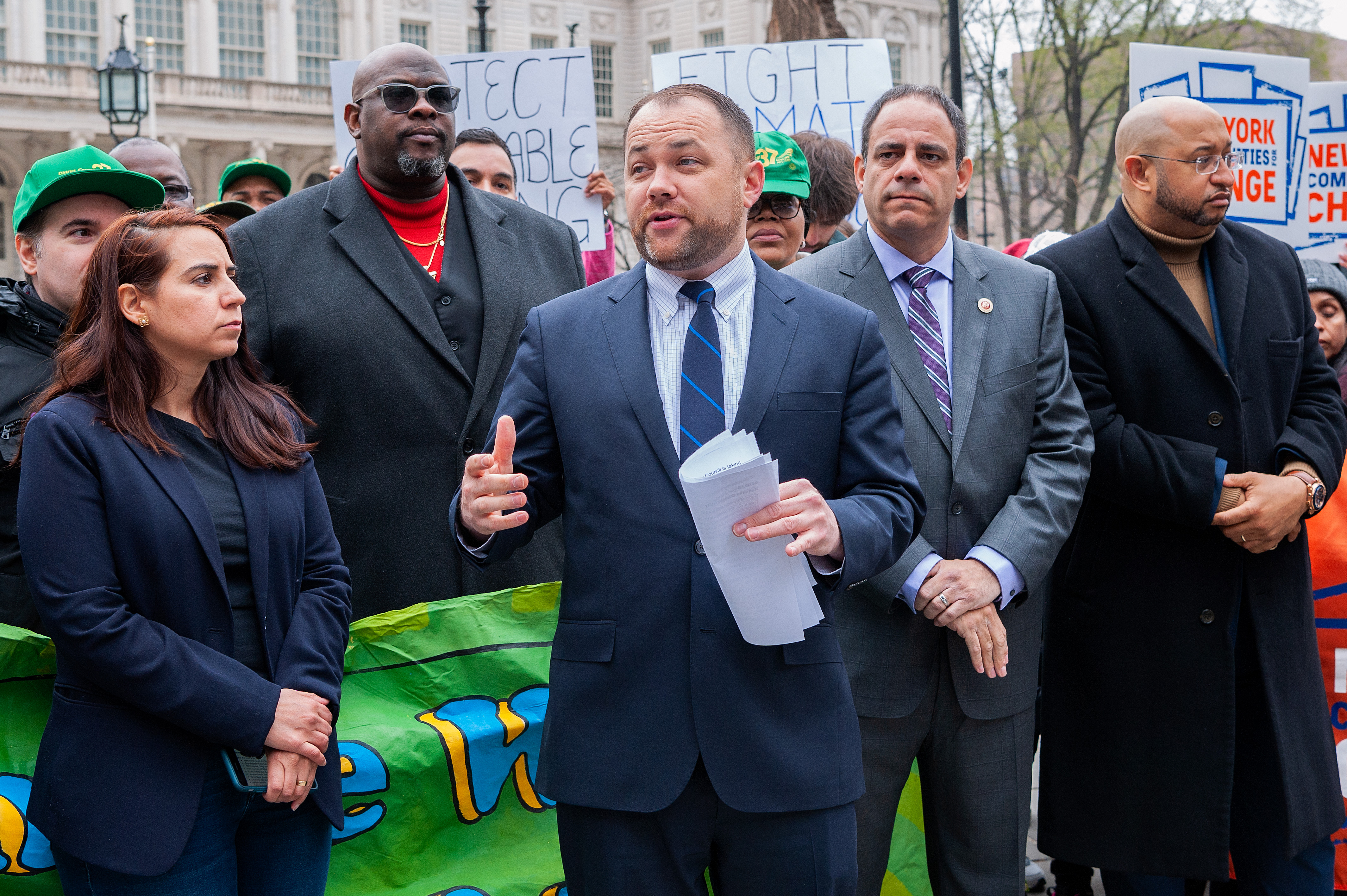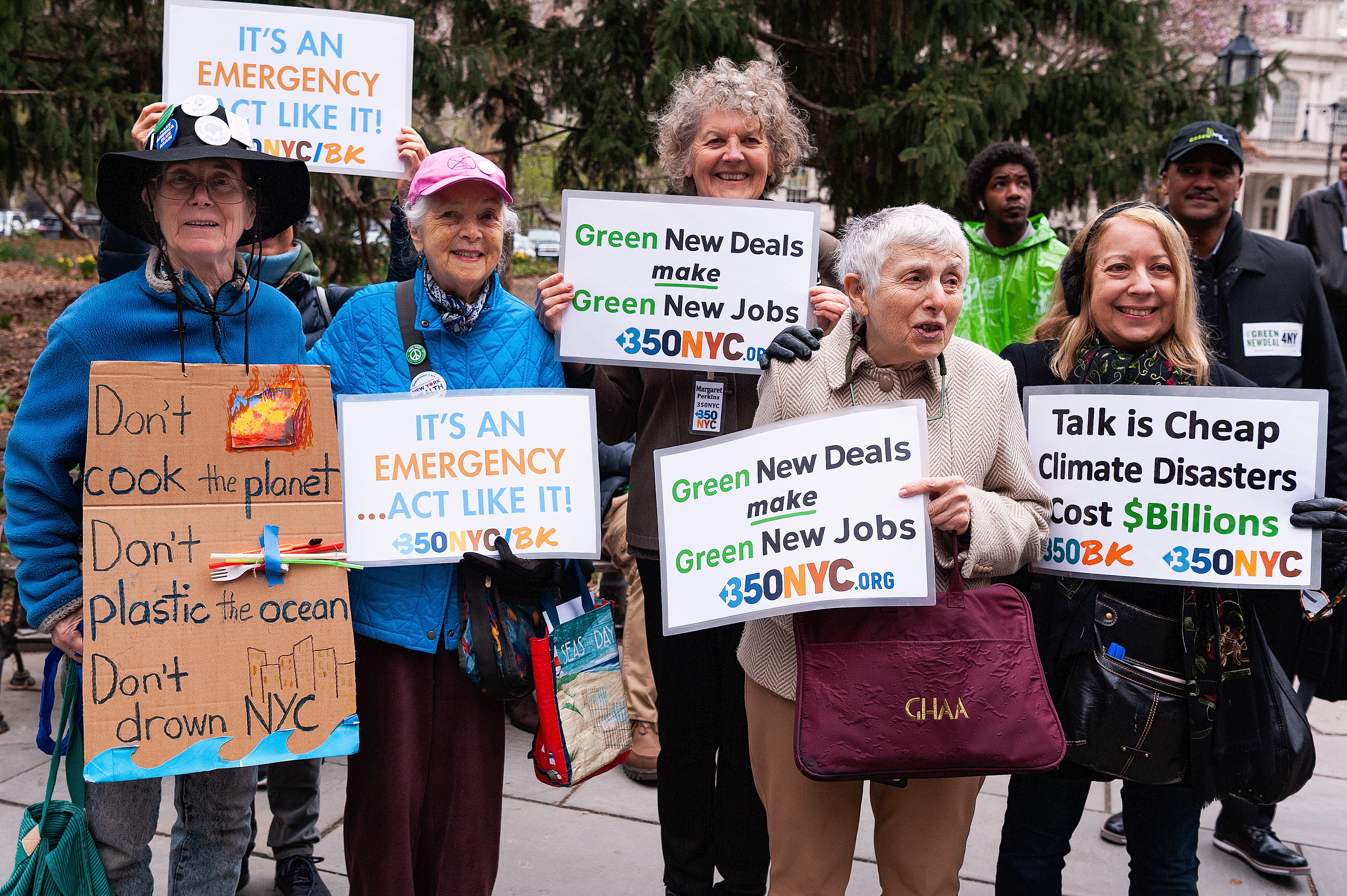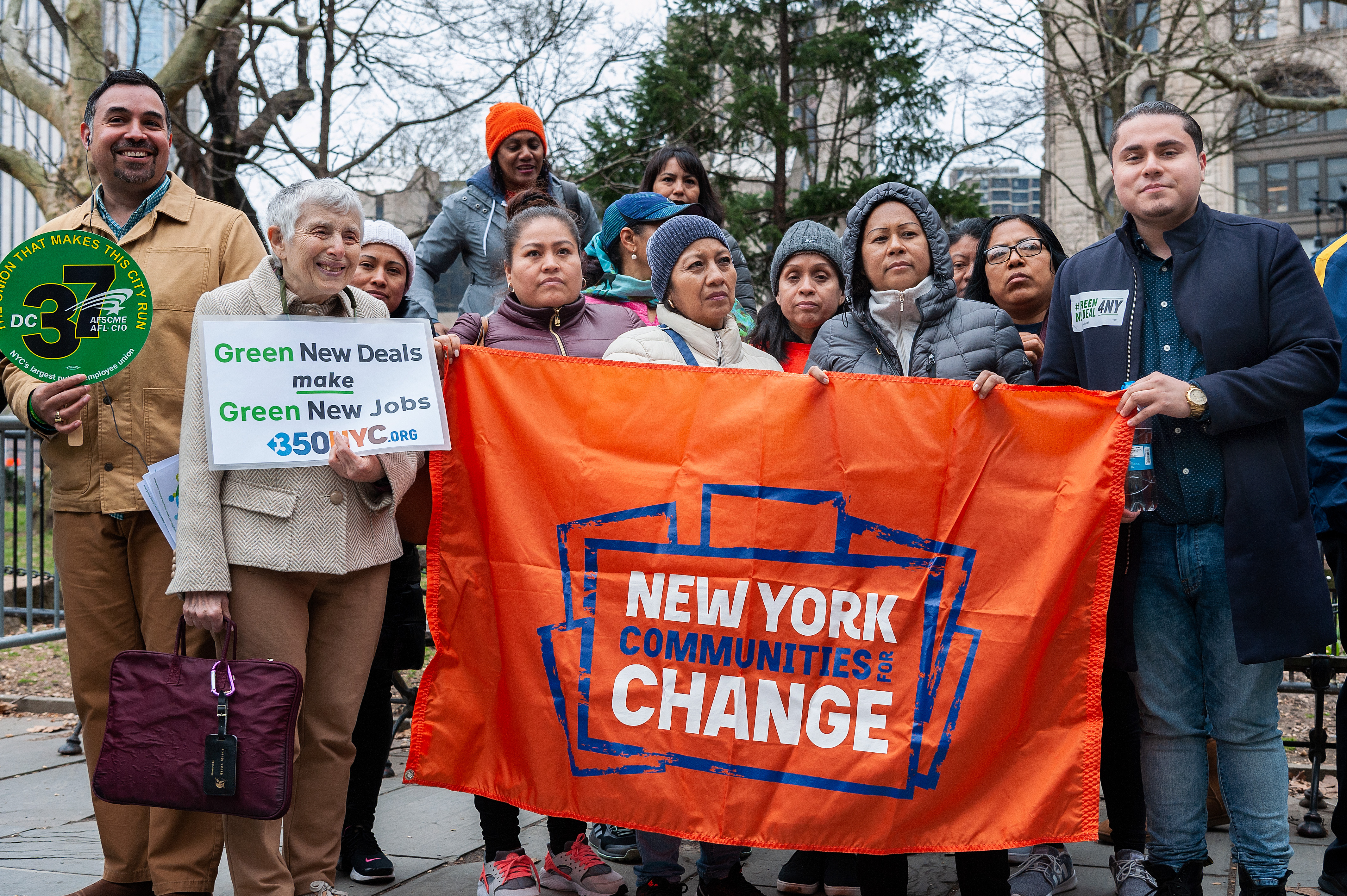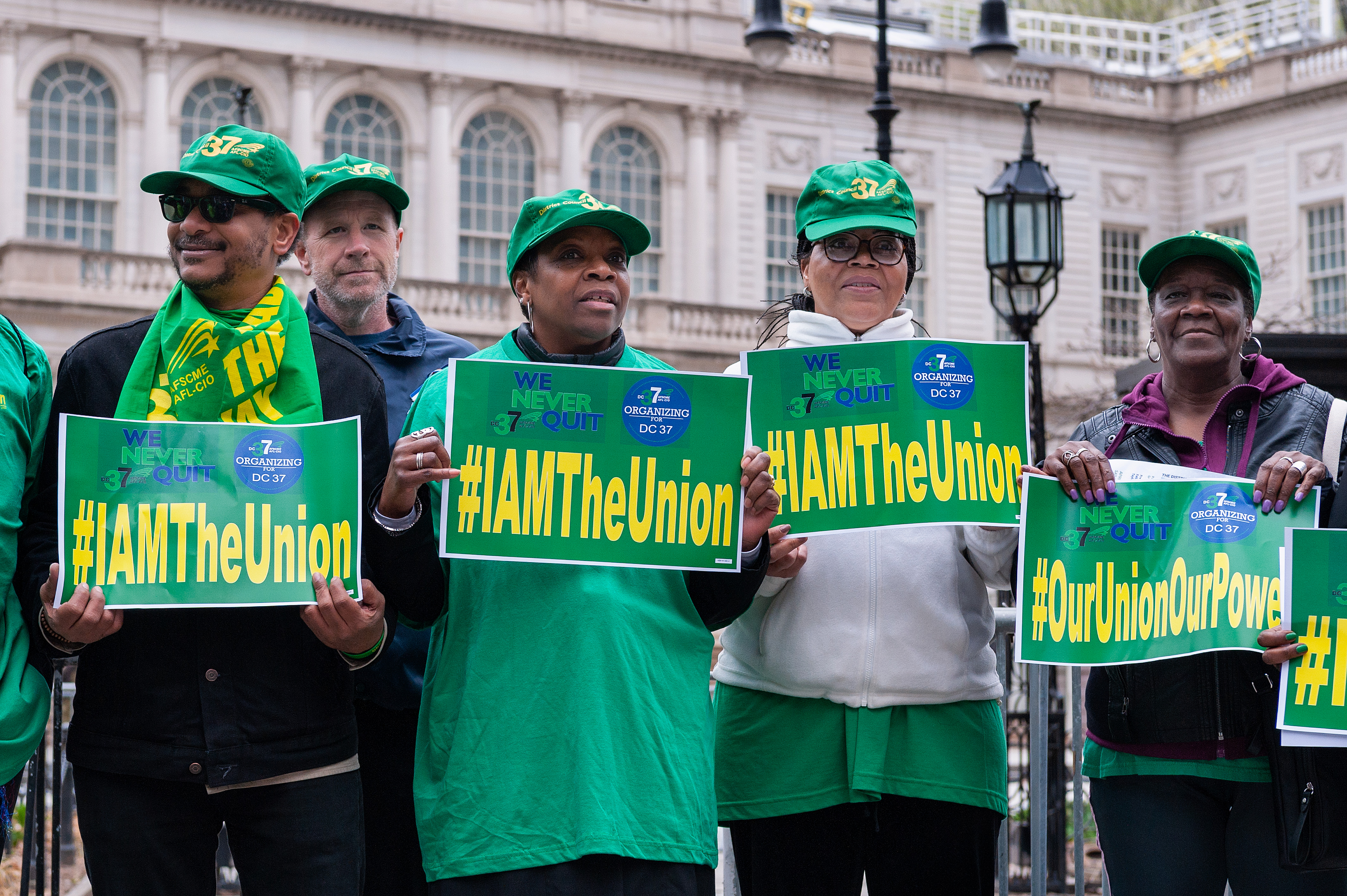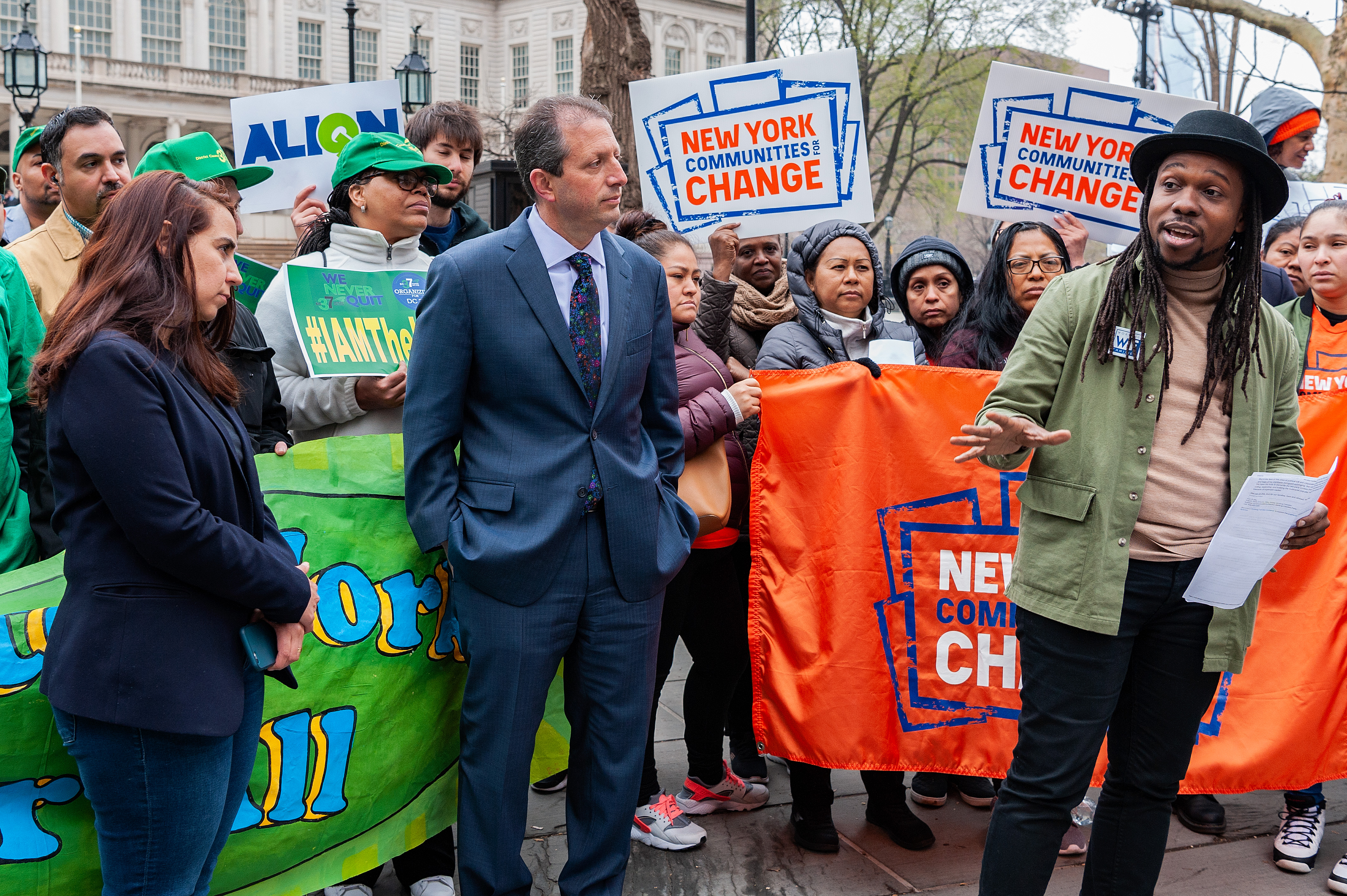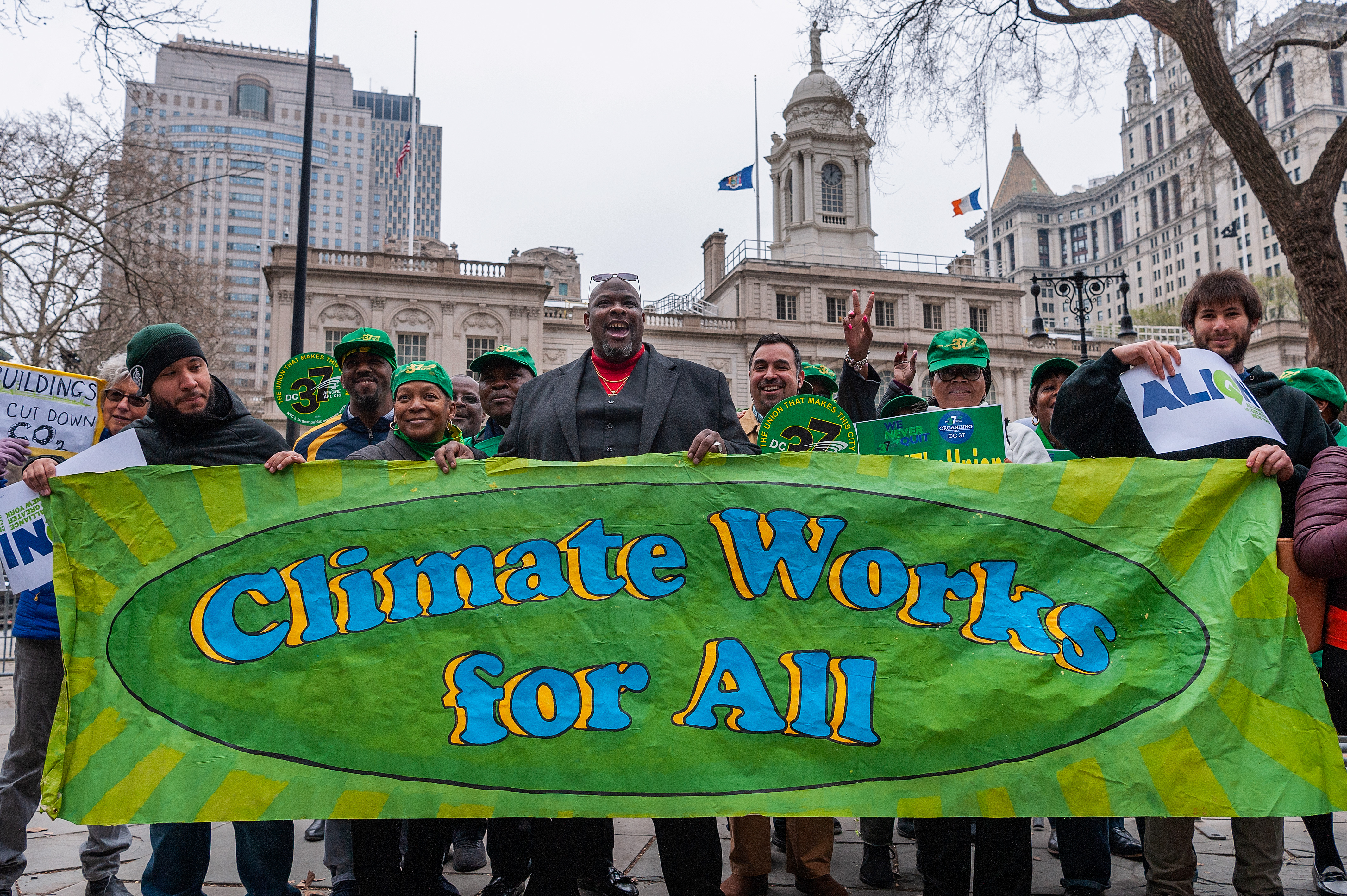On Tuesday, April 9th, a coalition of advocacy groups, labor organizations, and New York City council members held a day of action calling on members of the New York City Council to support and pass Introduction 1253. The bill would mandate buildings over 25,000 square feet to curb their greenhouse gas emissions making New York the first major city in the world to pass such legislation.
1253, which was introduced by Councilmember Costa Constantinides in November 2018 and if passed, would require landlords to make energy efficient upgrades cutting building pollution and energy use 40% by 2030 and 80% by 2050. It also would be the most comprehensive and progressive piece of green new deal legislation in the entire country.
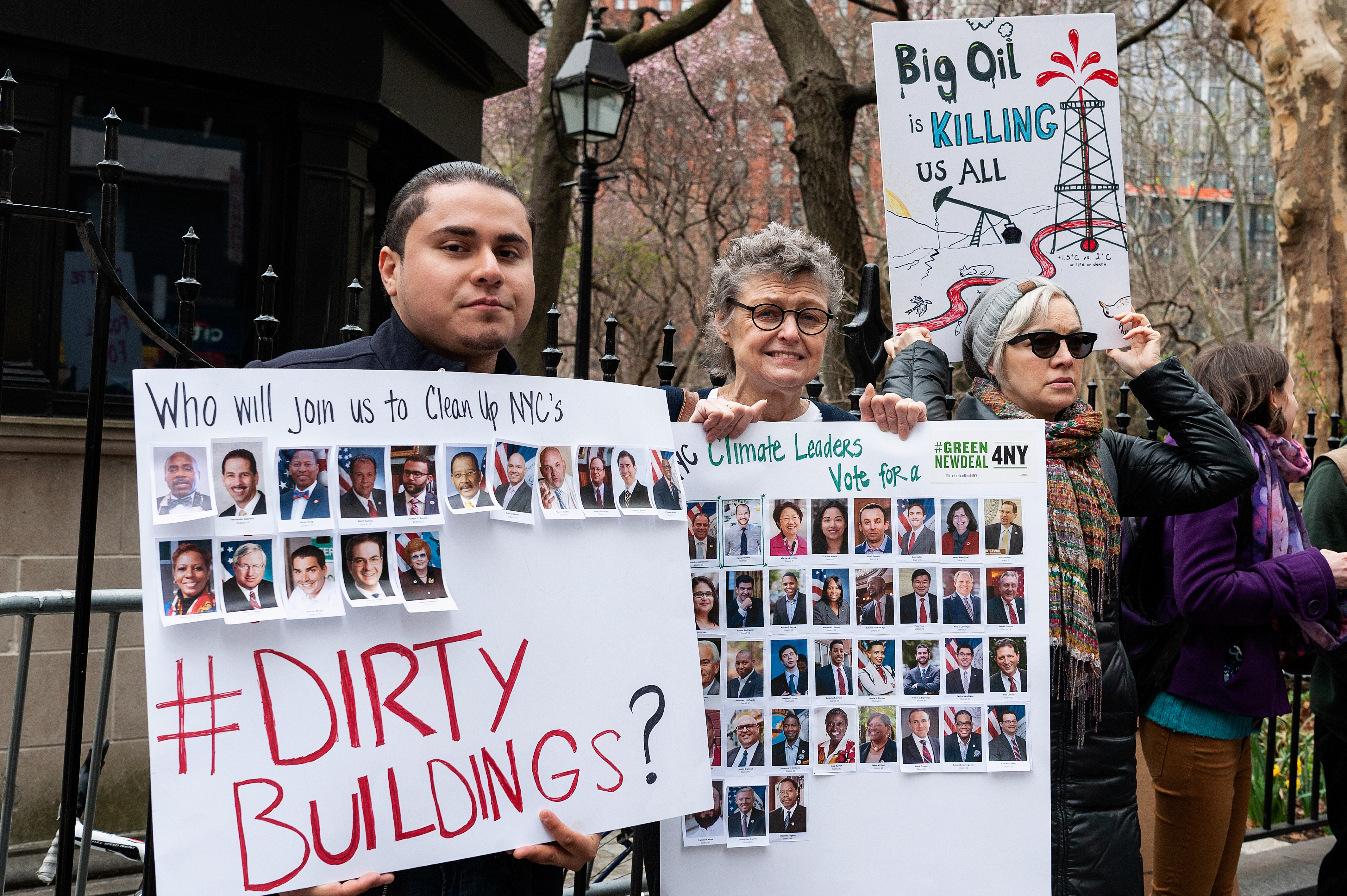
Building pollution accounts for 70% of New York City’s greenhouse gas emissions; and while buildings over 25,000 square feet only make up 5% of all buildings in New York City, they contribute to almost half of the city’s pollution. According to a report published by New York City Communities For Change, the city generated 52 million metric tons of greenhouse gases in 2016 with 36 million emitted by existing building; to put the numbers in perspective: buildings in New York City create about twice as much pollution as Kenia with a population of 50 million. If enacted, the legislation would cut the city’s greenhouse gas emissions by seven percent, including a 40% reduction in emissions from the city’s buildings.
During the noontime press conference held in City Hall Park, Councilmember Constantinides pointed out the adverse effect New York City’s poor air quality has on New Yorkers; 80,000 of its residents suffer from asthma and every single year, 4,000 children visit emergency rooms. He emphasized the urgency to pass the bill, “We see weather events becoming stronger from climate change. We see a federal government who denies climate change and yet in their own report that they tried to hide on Thanksgiving weekend show that there will be over 100,000 climate refugees in the tri-state area.”
Calling out those opposed to the bill, he said, “New York as we know it will cease to exist. And yet, big real estate will say ‘we should slow down.’ Op-ed after op-ed, the last couple of days, have taken swings at the legislation and said ‘we’ve been rushed.’ – We haven’t moved fast enough. The time is now!”
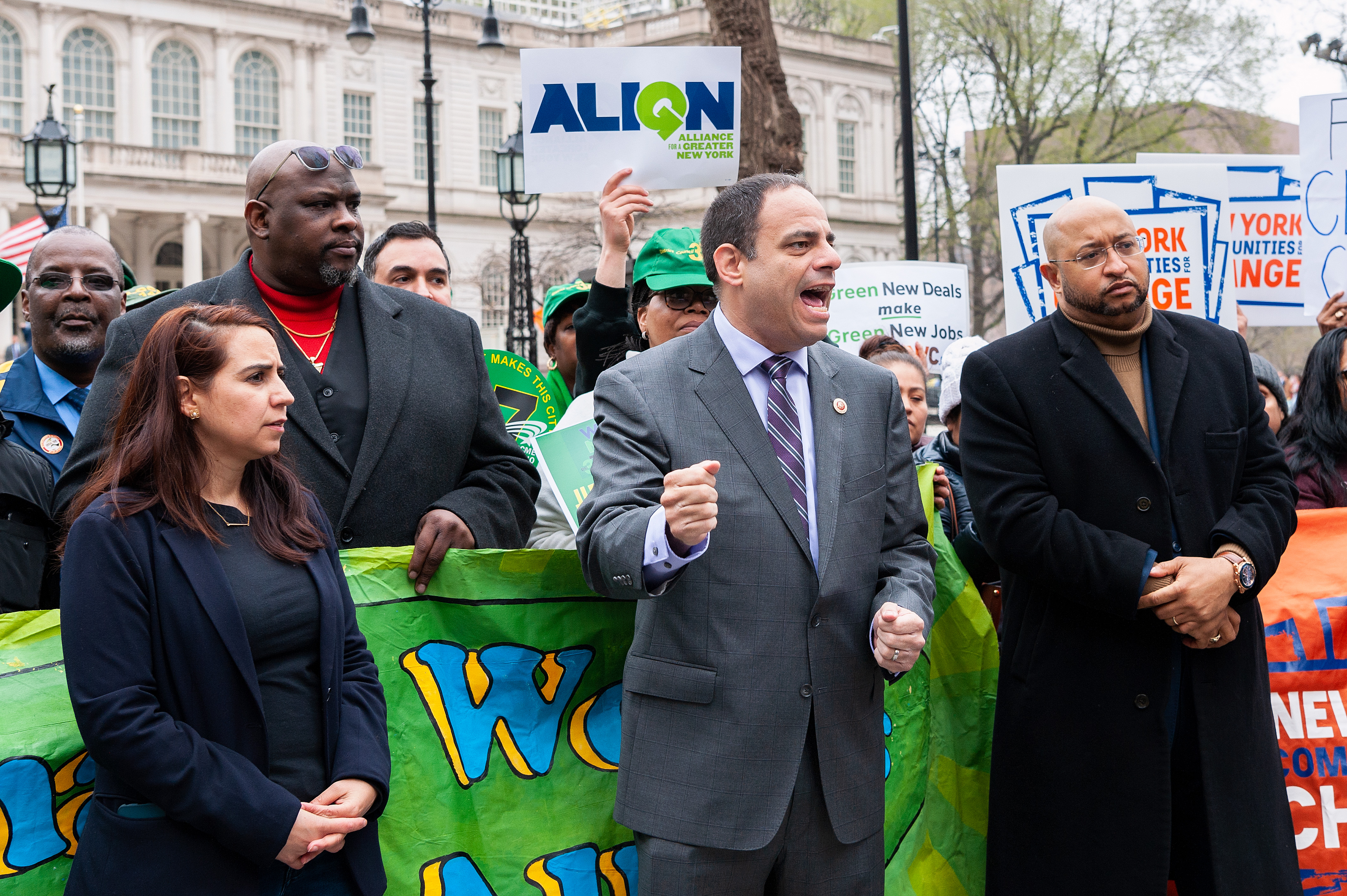
Unsurprisingly, Intro 1253 has met opposition from the real estate industry as well as private hospitals and religious institutions; they argue that the law would put a financial strain not only on them but also on tenants in rent-regulated housing. However, the bill includes standards tailored to religious institutions as well as rent-regulated housing. Religious institutions and non-profit organizations can apply for a variance for the measures and receive an exemption. Energy efficient upgrades would not qualify for MCIs (Major Captial Improvements) preventing landlords from passing the incurred costs on to rent-regulated tenants. The real estate industry’s vow to self-regulate after then-Mayor Michael Bloomberg tried to set pollution standards has been a failure since the payback period of energy efficient improvements takes too long for an industry that expects a fast and profitable turnaround.
Energy efficient upgrades range from simple improvement like better lighting, insulating pipes, and repairing air leaks to more complex ones like insulated roofs, draft-free windows, and energy efficient building heating and cooling systems. – Upgrades that would substantially lower energy costs and create thousands of new green jobs for New Yorkers benefitting the city’s low and moderate income communities of color.
So far, 34 members of the New York City Council which is set to vote on Intro 1253 on April 18th, support the measure.
Day Of Action Photos:
